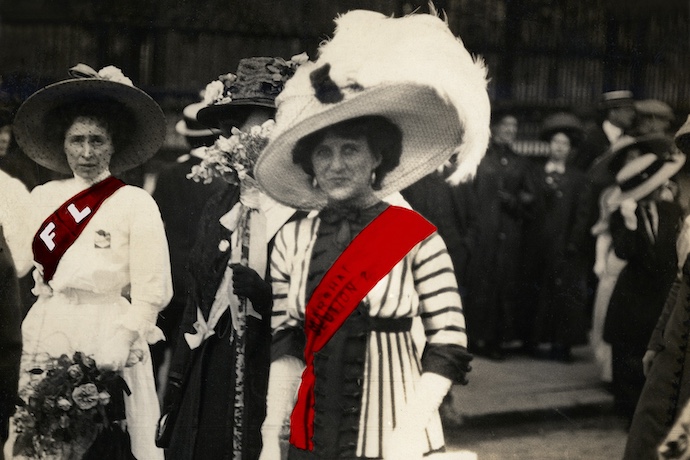The Platform
Latest Articles
by Saahith Reddy
by Dikumoni Hazarika and Rohil Oberoi
by Humma Rehman Qureshi
by Ishikaa Banot
by Wonderful Adegoke
by Dovilė Sagatienė
by Sheiknor Qassim
by Collins Chong Yew Keat
by Abdul Mussawer Safi
by Manish Rai
by Saahith Reddy
by Dikumoni Hazarika and Rohil Oberoi
by Humma Rehman Qureshi
by Ishikaa Banot
by Wonderful Adegoke
by Dovilė Sagatienė
by Sheiknor Qassim
by Collins Chong Yew Keat
by Abdul Mussawer Safi
by Manish Rai
The French Vanguard: France Enshrines Abortion as a Constitutional Right
France has taken steps to protect a woman’s right to choose in the country’s constitution.
As the world marks International Women’s Day, the conversation around women’s rights is gaining momentum. In this context, France’s avant-garde move to enshrine abortion rights within its constitutional fabric has taken center stage. This defining action not only heralds France as the inaugural nation to constitutionalize abortion but also arises, in part, as a retort to the U.S. Supreme Court’s revocation of Roe v. Wade, kindling a vigorous discourse on the sanctity of reproductive autonomy.
The esteemed chambers of the French Parliament, situated within Versailles’ historic splendor, bore witness to this watershed moment. Legislators voted overwhelmingly, 780 to 72, endorsing the amendment which enshrines the ‘guaranteed freedom’ of abortion in France, a bold leap towards fortifying reproductive liberties. It’s imperative to acknowledge, however, that within this dialogue, a contingent lobbied for more assertive phrasing, advocating for abortion to be inscribed as an unequivocal “right.”
Reactions to France’s landmark decision have mirrored the global schism on reproductive rights. Advocates herald it as a triumph for gender parity and self-determination, while detractors deliberate on the moral quandaries and the unborn’s rights.
In an era where reproductive freedoms are besieged in the United States and parts of Europe, France’s initiative assumes greater symbolism. It embodies resistance and camaraderie against the tightening grip on reproductive liberties.
Following the legislative endorsement, the Parisian nightscape was emblazoned with the defiant proclamation “My body my choice” upon the Eiffel Tower, a beacon of solidarity for personal sovereignty and reproductive choice. This bold display serves as a testament to the enduring convictions and principles at the heart of this issue, emphasizing the imperative of sustained dialogue and commitment.

While France’s constitutional amendment is undeniably momentous, it equally highlights the enduring intricacies woven into the reproductive rights narrative. The path ahead mandates an approach imbued with empathy and openness, considering the myriad of viewpoints and experiences. Respectful discourse and collective endeavor are the keystones to advancing reproductive justice on a worldwide scale.
France’s amendment heralds not just a national but an international advance in the quest for women’s rights. Gabriel Attal, France’s first openly gay prime minister, reverently spoke of a debt owed to women who once faced clandestine abortions, underscoring the sovereignty over one’s body. In harmony with this sentiment, President Emmanuel Macron declared a commemoration on International Women’s Rights Day, harking back to Simone Veil’s pioneering efforts in legalizing abortion in 1975.
The left-wing factions in France, undeterred by the opposition, have been steadfast in their pursuit of constitutional protection for abortion rights, especially after the pivotal 2022 decision in the United States. While the Catholic Church voiced dissent, the majority of French legislators acknowledged the imperative of preserving reproductive freedoms.
The ratification of abortion rights within the French constitution is a salute to women’s autonomy and bodily integrity. By elevating this prerogative to the apex of its legal hierarchy, France pronounces the criticality of reproductive choice and the safeguarding of access to safe, lawful abortion services. This stride is in concert with global progressive undertakings, as seen in Canada and South Africa‘s protective reproductive rights legislation.
Yet, abortion remains a divisive topic across the globe, with morality and religious beliefs heavily influencing the discourse. In the United States, the ongoing legal tussles over abortion access and the historic Roe v. Wade case typifies the multifaceted nature of reproductive rights within a heterogeneous society.
The legal standing of abortion is a mosaic of divergent cultural, religious, and political landscapes. For instance, while Poland and Ireland face rigid abortion statutes and subsequent societal backlash, Scandinavian nations exemplify prioritizing women’s self-determination and access to inclusive reproductive health services.
In formulating laws and policies, a delicate equilibrium is sought between women’s rights and child welfare. It is prudent to contemplate practical measures drawn from global exemplars.
Incorporating comprehensive sex education into school curricula, akin to the Dutch model, fosters informed reproductive choices. Accessible contraception, as championed by Sweden, further anchors women’s autonomy. Norway’s model of parental support showcases how societal structures can underpin family welfare, while Canadian health services epitomize the ethos of compassionate care in reproductive matters. New Zealand’s balanced legal approach seeks to honor the rights of women and unborn children alike.
Thus, embracing a holistic suite of educational, contraceptive, and societal support measures, paired with empathetic healthcare, can mitigate factors leading to unintended pregnancies and abortions. Learning from the successes of countries like the Netherlands and New Zealand can chart the course toward comprehensive reproductive justice.
France’s constitutional recognition of abortion rights is a pivotal stride in the march for reproductive justice. Acknowledging the remaining hurdles is crucial as the global community forges ahead to ensure universal access to safe, lawful, and comprehensive reproductive healthcare. Through mindful dialogue and advocacy, the goal of reproductive justice becomes an increasingly attainable reality.
Prachi Tripathi is a fourth year student at the Faculty of Law, Jamia Millia Islamia, New Delhi.
